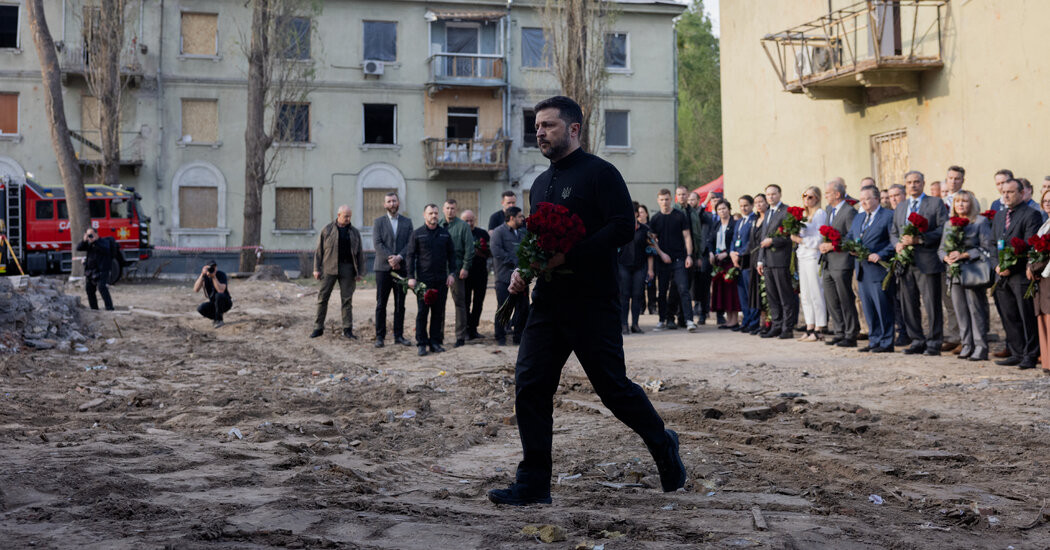

Officials in Kyiv plan to deliver their proposal to President Trump’s team, after rejecting a White House plan that would have given the Kremlin much of what it wants.
In response to a White House proposal to end the war in Ukraine that critics say would grant the Kremlin much of what it wants, Ukraine’s leadership has drafted a counteroffer — one that in some ways contradicts what President Trump has demanded, but also leaves room for possible compromises on issues that have long seemed intractable.
Under the plan, which was obtained by The New York Times, there would be no restrictions on the size of the Ukrainian military, “a European security contingent” backed by the United States would be deployed on Ukrainian territory to guarantee security, and frozen Russian assets would be used to repair damage in Ukraine caused during the war.
Those three provisions could be nonstarters for the Kremlin, but parts of the Ukrainian plan suggest a search for common ground. There is no mention, for instance, of Ukraine fully regaining all the territory seized by Russia or an insistence on Ukraine joining NATO, two issues that President Volodymyr Zelensky has long said were not up for negotiations.
Mr. Trump flew to Rome on Friday to attend the funeral of Pope Francis on Saturday; Mr. Zelensky had planned to as well, but his spokesman said on Friday that this would depend on the situation in Ukraine, where Russian attacks this week on the capital, Kyiv, and elsewhere have left dozens dead and wounded.
In a social media post after landing in Rome, Mr. Trump said Russia and Ukraine were “very close to a deal” and urged the two sides to meet directly to “finish it off.” Earlier in the day, he said it was possible he and Mr. Zelensky could meet on the sidelines of the funeral. A senior Ukrainian official, speaking on condition of anonymity, said that if Mr. Zelensky goes to Rome, he might try to present Mr. Trump with Ukraine’s counterproposal personally.
“In the coming days, very significant meetings may take place — meetings that should bring us closer to silence for Ukraine,” Mr. Zelensky said on Friday in remarks that were uncharacteristically optimistic when compared with the tone of previous statements this week.